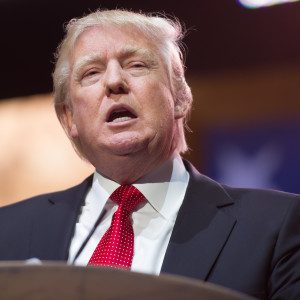The resilience of Donald Trump’s support is the topic of political pundits, especially since the last debate. His strained relations with Fox is at the center of many of these discussions and the resulting power balance in the GOP is the subject of much speculation. Many opine that Trump is likely to flame out, losing the primary to a more traditional candidate despite his Hulk-like ability to grow stronger with every attack. This has led to a number of different creative scenarios.
In the event that he wins the Republican primary, the party might be nominating an utterly unelectable candidate with negative coattails. Polls have not yet examined the degree of support for Trump among Democrats and Independents but given Trump’s rhetoric and their more moderate positions, it’s not hard to see how a Trump ticket might negatively impact Congressional elections.
Some political strategists and members of the Republican National Committee fear that Trump might be even more damaging as a third-party candidate. As a formidable speaker and wealthy businessman, he might be able to hold his own and draw away enough voters to insure the election of another president from the Democratic Party.
There is one more possibility that so far has gone uncontemplated except in the darkest nightmares of Republican strategists: what if Trump ran as an independent and came in second?
History does not provide us with any good examples of a candidacy where a nationally-recognizable figure in the tent of a party went on to challenge it in a general election, let alone break into second place. Then again, most pundits are incredulous at Trump’s continued rise in the polls, so let’s accept that for now, he’s an unusual candidate.
He already famously stated that he would not promise to commit to supporting the Republican nominee, whoever he or she may be. He certainly has the resources and name recognition to push a third party candidacy. Why would he do this?
Trump, wealthy though he is, is still an outsider to the moneyed power players of the Republican Party. Collectively, they wield far more influence over candidates and policy through the GOP. If you want to shake up a tightly held organization, you need to give it a shock to break it up. A third place finish in the general election would be just the thing. It’s a power play and Trump’s hostile takeover of the GOP.
Trump has also discovered that at least some Republican voters are of a similar mind. Conservative pundits frequently decry the evils of establishment Republicans and RINOs (Republicans In Name Only). Tea Party members and sympathizers would like nothing better than to strike a blow against Republican political elites. It would be the ultimate vote of no-confidence, especially as it might open the doors of the White House to Hillary Clinton. The symbolism would be undeniable and would likely result in significant changes within the Republican Party.
The question is how much do Donald Trump and GOP voters want change they can believe in?

